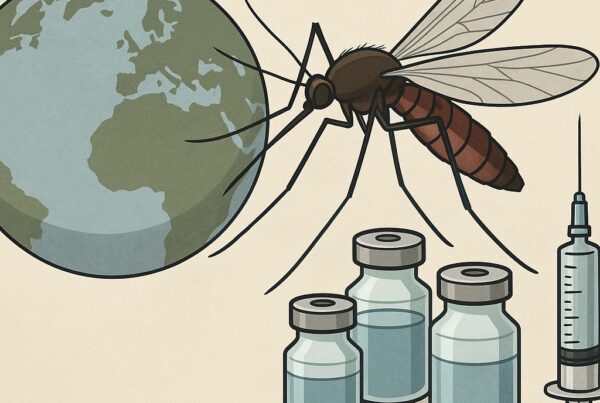The World Health Organization (WHO) has announced that the mpox outbreak, formerly known as monkeypox, in Africa is no longer categorized as a global health emergency. This decision marks a major turning point after more than two years of international efforts to contain the spread of the virus. However, WHO warned that risks of transmission remain and preventive measures must continue.
Background of the Mpox Outbreak
Mpox was first declared a Public Health Emergency of International Concern (PHEIC) in July 2022 when cases surged rapidly across Europe, the Americas, and Africa. The declaration enabled global coordination in vaccine distribution, research, and emergency funding for affected countries.
Since the start of the outbreak, more than 94,000 cases have been reported worldwide. Africa has accounted for a significant proportion of endemic transmission, while highly mobile countries also recorded steep case increases.
WHO’s Decision to Lift the Emergency Status
WHO Director-General Tedros Adhanom Ghebreyesus stated in a press briefing that the trend of new cases in Africa shows a consistent decline. He emphasized that countries have improved their capacity to detect and manage patients. “While the emergency status is lifted, mpox remains a threat that must be managed seriously,” Tedros said.
The decision does not mean the outbreak is over. Instead, WHO explained that the change represents a shift in strategy from emergency response to long-term disease management.
Ongoing Risks and Challenges
Despite the decline in new cases, mpox transmission risks have not disappeared. WHO warned of possible local outbreaks, particularly in regions with limited healthcare capacity. Close-contact transmission remains the main driver of infection.
Social stigma against mpox patients also continues to hinder response efforts. Public education and transparent information campaigns are seen as essential to reduce discrimination and encourage people to seek timely treatment.
Vaccine Access Remains Unequal
Access to vaccines has been a crucial factor in reducing transmission. WHO urged for fairer distribution of the MVA-BN vaccine, also known as Jynneos or Imvanex. Low-income countries in Africa continue to face significant gaps in vaccine availability.
International organizations have been called upon to collaborate in ensuring equitable vaccine supply and essential medicines, in line with WHO’s policy to promote global health equity.
Africa’s Role in Disease Control
Several African countries have significantly strengthened their laboratory capacity, surveillance systems, and medical training for handling mpox patients. Governments have also partnered with community organizations to educate the public about prevention measures, including hygiene practices and isolation protocols.
This progress was one of the main reasons behind WHO’s decision to end the emergency status, though the organization stressed the need for continued vigilance.
Global Implications
The decision to lift the mpox emergency has wide-reaching implications for global health policy. Countries are now expected to shift their focus from short-term emergency response to sustainable long-term strategies. This includes ongoing vaccination programs, deeper scientific research, and stronger public health infrastructure.
The move also highlights how the world has become more experienced in handling emerging infectious diseases. However, unequal vaccine and drug distribution remains a central challenge that must be addressed through international cooperation.
Official Statement
In his statement, Tedros stressed, “Mpox is no longer a global health emergency, but our work is not finished. We must ensure sustained response so this disease does not re-emerge as a major threat.”
His words underline the idea that lifting the emergency is not the end of the fight against mpox but the beginning of a new phase focused on sustainable prevention.
WHO’s Recommended Actions
WHO urged all countries to:
- Maintain strong case surveillance systems.
- Provide vaccines for high-risk groups.
- Strengthen public communication to counter stigma.
- Expand international cooperation on research and funding.
These measures are considered essential to prevent future waves of mpox outbreaks.
Conclusion
WHO’s decision to lift the mpox emergency is a positive step, but the world cannot afford to be complacent. Risks of transmission remain, particularly in African regions most affected. Equitable access to vaccines and stronger healthcare systems will be key to ensuring that a resurgence does not occur.
This development highlights that managing infectious diseases requires continuous global collaboration. With preparedness and solidarity, the international community can build resilience against future health threats.
Read more global health updates and in-depth coverage at Olam News to gain broader insight into the latest worldwide health trends.






